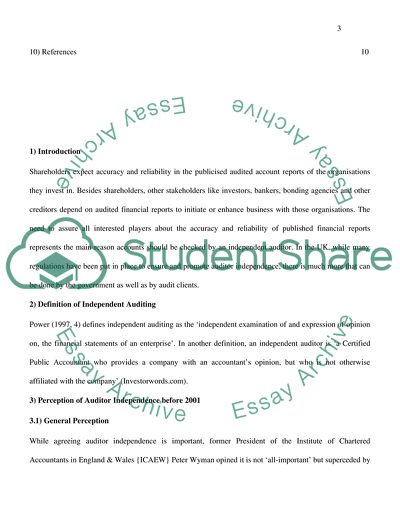Cite this document
(Auditor Independence Case Study Example | Topics and Well Written Essays - 1750 words, n.d.)
Auditor Independence Case Study Example | Topics and Well Written Essays - 1750 words. Retrieved from https://studentshare.org/finance-accounting/1716211-accounting-fraud
Auditor Independence Case Study Example | Topics and Well Written Essays - 1750 words. Retrieved from https://studentshare.org/finance-accounting/1716211-accounting-fraud
(Auditor Independence Case Study Example | Topics and Well Written Essays - 1750 Words)
Auditor Independence Case Study Example | Topics and Well Written Essays - 1750 Words. https://studentshare.org/finance-accounting/1716211-accounting-fraud.
Auditor Independence Case Study Example | Topics and Well Written Essays - 1750 Words. https://studentshare.org/finance-accounting/1716211-accounting-fraud.
“Auditor Independence Case Study Example | Topics and Well Written Essays - 1750 Words”. https://studentshare.org/finance-accounting/1716211-accounting-fraud.


